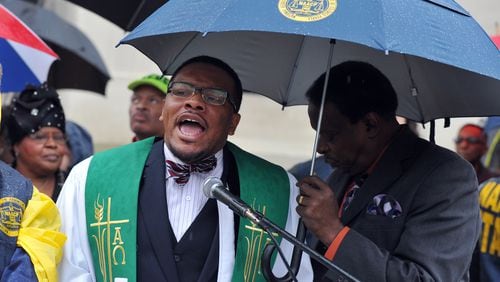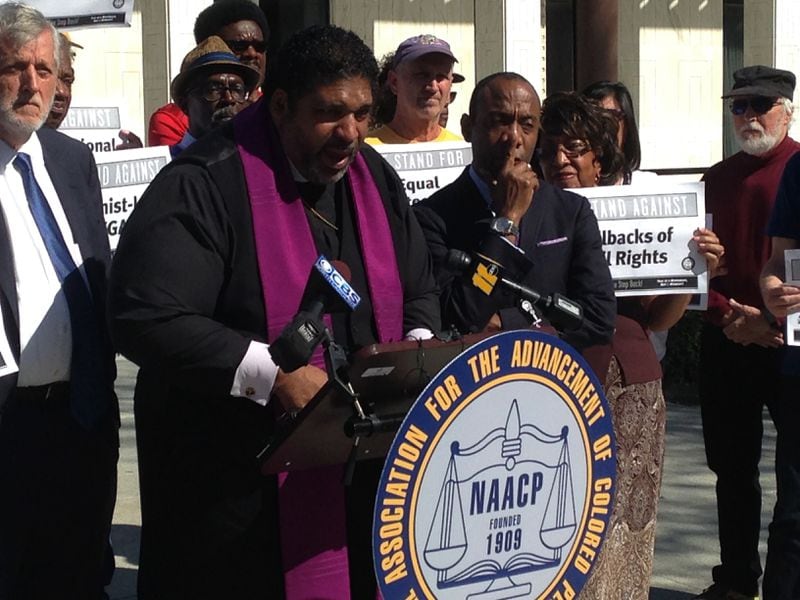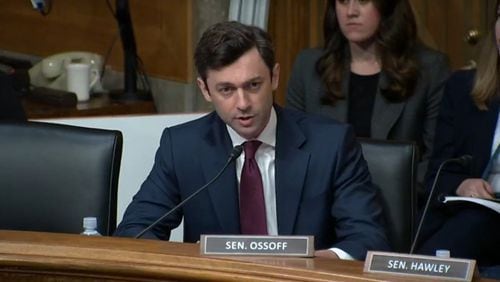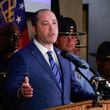With an eye toward elective office, Georgia NAACP President Francys Johnson announced that he was stepping down from his post on Saturday.
Johnson, 38, a civil rights attorney and pastor from Statesboro, has been rumored as a possible challenger to Congressman Rick Allen (R-Augusta) in the 2018 midterms.
In resigning from the NAACP at the 108th National Convention in Baltimore, he stopped short of making an announcement and called the end of his 30 years in the organization an emotional moment.
“Our nation is in crisis. This moment calls for every head, heart and hand to engage the work of ensuring that all the promises of our democracy are fulfilled,” Johnson said. “The upcoming election in 16 months carries consequences unlike any other midterm in our lifetime. This election will either reinforce and sustain the path we’re on — or change it. I promise no one will work harder to turn this momentum for change into a reality.”
Although Johnson hasn’t confirmed that he is running for Congress, NAACP rules require officers to step down to run for public office.
“Francys Johnson lent his talent, time and treasure to the association at a critical time,” said Derrick Johnson, the NAACP’s interim president and CEO. “I don’t think we’ve seen the last of his leadership.”
Francys Johnson’s departure marks another moment of upheaval for the NAACP, which has seen a recent spate of turnover. The 108-year-old organization is struggling for relevancy at a time when organizations like Black Lives Matter are playing a more vocal and prominent role.
In May, The NAACP dismissed National President Cornell William Brooks, after only three years in office. In firing Brooks, the organization said it was looking for a "transformational, systemwide refresh and strategic re-envisioning" in the age of Donald Trump.
Credit: Jonathan Drew
Credit: Jonathan Drew
At the same time, the NAACP’s most prominent voice, the Rev. William Barber, stepped down as the state of North Carolina president with five months left in his term to launch a national Poor People’s Campaign.
"You can't look at young folks and say you're going to be the leaders of the future,” said Leon Russell, chairman of the NAACP board of directors. “You have to give them the opportunity to lead now and that's what the NAACP believes."
During Johnson’s tenure the Georgia NAACP filed 10 federal and state lawsuits addressing redistricting and voting rights.
“He was as comfortable leading the powerful demonstrations across Georgia in response to police-involved deaths of citizens and the Atlanta March for Women and Social Justice, the largest protest march in Georgia history at 63,000 protesters, as he was giving an argument in court or sermon in the pulpit,” said the Rev. Raphael Warnock of Ebenezer Baptist Church. “That takes a rare combination of talents.”
The Georgia NAACP will elect its next state president in October at the 75th State Convention in Augusta.
About the Author









